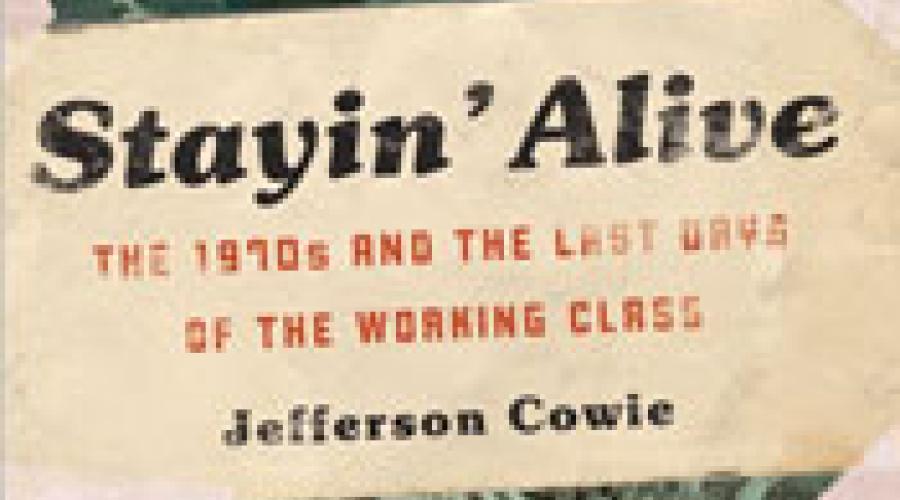
Historians Select <i>Stayin' Alive</i>
Jefferson Cowie's Stayin' Alive has been named the best book in American social and intellectual history of 2010 by the Organization of American Historians.
Cowie, a social and political historian who teaches labor history at ILR, will receive the Merle Curti Award at the group’s annual meeting Saturday in Houston.
Published in September by The New Press, Stayin' Alive: The 1970s and the Last Days of the Working Class interprets America's shift from New Deal optimism to broader economic inequalities and dampened expectations, according to its author, an associate professor.
The Merle Curti Award Committee, which sifted through hundreds of nominated books to select this year's winner, said Stayin' Alive "moves nimbly between popular culture, campaign and electoral politics, and social science debates to offer a compelling and devastating account of what happened to the American working class in the 1970s."
"Cowie tracks major shifts in political and popular public discourse as class structure changed and a new and polarizing language for talking about it emerged. Analyzing the declining influence of organized labor from multiple vantage points, Cowie moves between the lived reality of working-class Americans and perceptions of that experience emanating from Washington, Wall Street, and Hollywood," the committee said in a statement.
Cowie, in his work as an historian, primarily focuses on how class, inequality and work shape post-war American politics and culture.
Stayin' Alive has been acclaimed by a number of media outlets. The Huffington Post and Mother Jones magazine named it as one of 2010's best books.
C-Span's Book TV program featured Stayin' Alive and in The Nation, historian Rick Perlstein writes that the book establishes Cowie "as one of our most commanding interpreters of recent American experience. It corrals all the generational energies coursing through the centrifuge of post-baby boomer '70s scholarship and churns them into the first compelling, coherent statement I've read of what happened in the '70s."
Cowie is also the author of Capital Moves: RCA's Seventy-Year Quest for Cheap Labor and co-editor of Beyond the Ruins: The Meanings of Deindustrialization.
In addition to teaching labor history at ILR, Cowie is a member of the graduate field of Cornell's Department of History and in the university's American Studies Program.
He also serves as house professor and dean of Cornell's William Keeton House. More about Cowie and his work can be seen at www.jeffersoncowie.com.
The Curti Award, named for a leading historian, is shared this year with "Confederate Reckoning: Power and Politics in the Civil War South" by Stephanie McCurry of the University of Pennsylvania.
The Organization of American Historians, founded in 1907, includes college and university professors, students, pre-collegiate teachers, archivists, museum curators and other public historians employed in government and the private sector.


